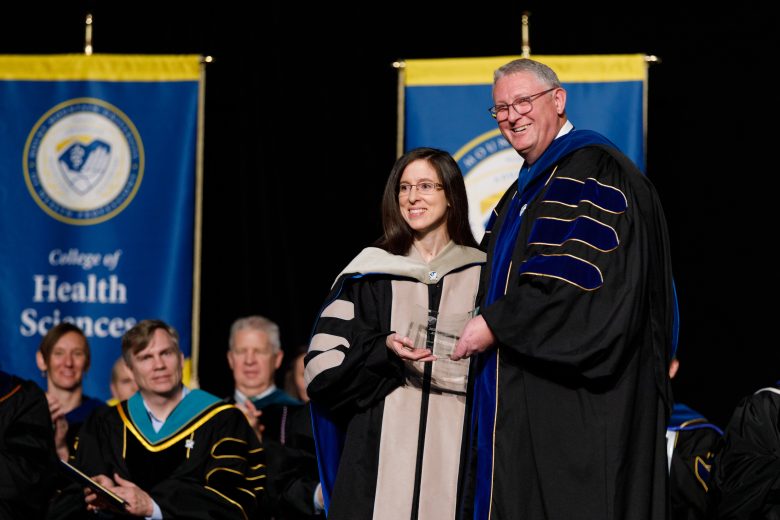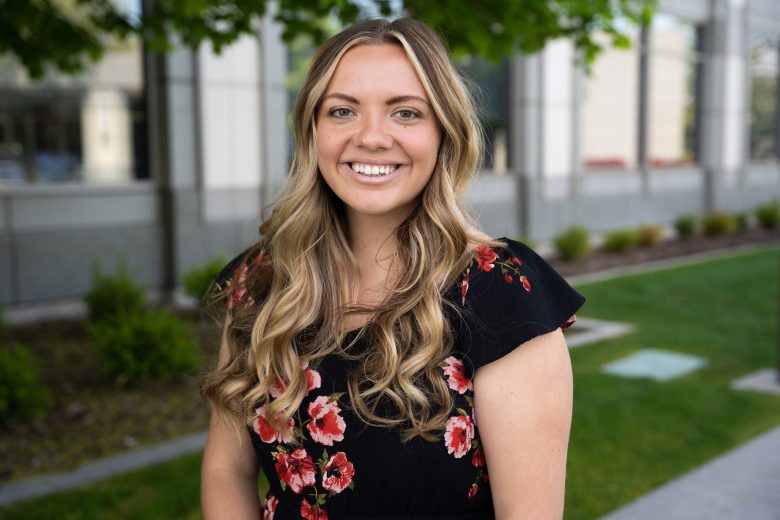Cherina Williams, M.Ed, CCC-SLP, is a licensed speech-language pathologist (SLP) and student in the Doctor of Speech-Language Pathology (SLPD) program at Rocky Mountain University of Health Professions (RMUoHP). As an SLP, Williams works to evaluate, diagnose, and treat from the neck up, and she has a special interest in early intervention.
SLP Early Intervention and Parent Involvement
Williams explains that early intervention within speech-language pathology looks at why children aren’t acquiring language or using language or interacting with the world around them. With early interventions, she works with children and parents to evaluate, diagnose, and treat speech impediments.
As part of the evaluation process, Williams collects information from parents’ observations, parent reports, and hands-on interaction with the children. After the evaluation, she will diagnose the child and set goals for the treatment. She adds that communicating with parents is important.
“I’m very big on parent coaching, teaching, and advocacy. I’m big on child goals and parent goals,” said Williams. “It’s important for parents to understand the implications of the diagnosis. To be able to do what I do when I’m not around and they can generalize it. And so they can reflect on what works and what doesn’t.”
Parent involvement is especially important as children enter school so parents can be their child’s advocate. For Williams, it’s important to train parents on not just how they’re helping the child but also why.
SLP Early Intervention for Child Success
“You’re simply trying to get families to see that if we make a few tweaks and alterations, then we can change the trajectory of things.” For example, by 12 months of age, a child should say their first word. It could be sooner, but it shouldn’t be later than one year.
By 18 months, the child should be saying ten words. By 24 months, 50 words. As they get older, they’ll start learning five to seven new words a week and then start talking in phrases.
But the first word at 12 months is an important milestone. “If we’re not hearing those early words, then something is going on,” said Williams. For example, you can tell within the first year if a child has hearing problems. Children with normal hearing start to babble differently around six months because their babbling becomes refined from observation and hearing. For children that are hard of hearing, the babbling stays the same.
“We want to know by 12 months what is going on. Now with all the research that is out there, we have different information on what causes developmental delays…We want to be on top of it and know what’s going on if something is going on. If we can catch it young, then we can undo a lot of it,” said Williams.
“The more that we understand,” said Williams, “the more that we can make an educated diagnosis and educated treatment plan that works for that family.”
Listen to the entire RMUpload podcast episode here.



